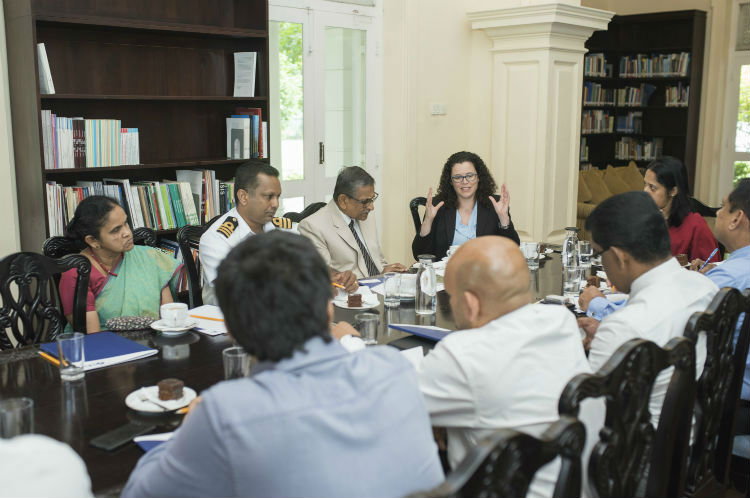June 26, 2018 Reading Time: 2 minutes

Reading Time: 2 min read
The Lakshman Kadirgamar Institute of International Relations and Strategic Studies (LKI) recently arranged a discussion on law of the sea and dispute resolution issues with Professor Natalie Klein—a renowned expert in international law. Professor Klein, who is based at the University of New South Wales in Sydney, Australia, has authored leading Oxford and Cambridge handbooks on the United Nations Convention on the Law of the Sea (UNCLOS) and international dispute settlement.
Professor Klein has examined these issues in a Sri Lankan context, having also spoken at LKI’s inaugural Foreign Policy Forum in June 2017 and recently at Deakin University’s conference on Maritime Order and the Indian Ocean, together with LKI’s Dr. Ganeshan Wignaraja.
To further her understanding of Sri Lankan perspectives and inform her future research, LKI convened a meeting on 21 June 2018 between Prof. Klein and representatives from different sectors in Sri Lanka related to maritime affairs. Representatives from the National Ocean Affairs Committee, the Sri Lanka Navy, the Attorney General’s Department, Sri Lanka Ports Authority, private sector shipping and logistics companies, and the University of Colombo, attended the meeting.
Participants discussed a range of concerns related to the law of the sea and dispute resolution in Sri Lanka, bringing together both public and private sector standpoints. The issues discussed included Sri Lanka’s outer continental shelf submission; exclusivity of rights and potential national gains from these submissions; seismic testing; customs, bunkering, and other related aspects of shipping; the arrest of vessels; floating armories; and options for efficient dispute settlement.
Participants also discussed other countries’ experiences, indicating that Sri Lanka should research and learn from them. There was general agreement that if Sri Lanka aims to transform itself into an attractive maritime hub like Dubai and Singapore, it needs to market itself better and ensure that it offers the ‘complete package’ to relevant stakeholders. There are a number of bottlenecks that need to be addressed to develop Sri Lanka’s capacity in this regard.
Photos: Fluke, by Ruvin de Silva